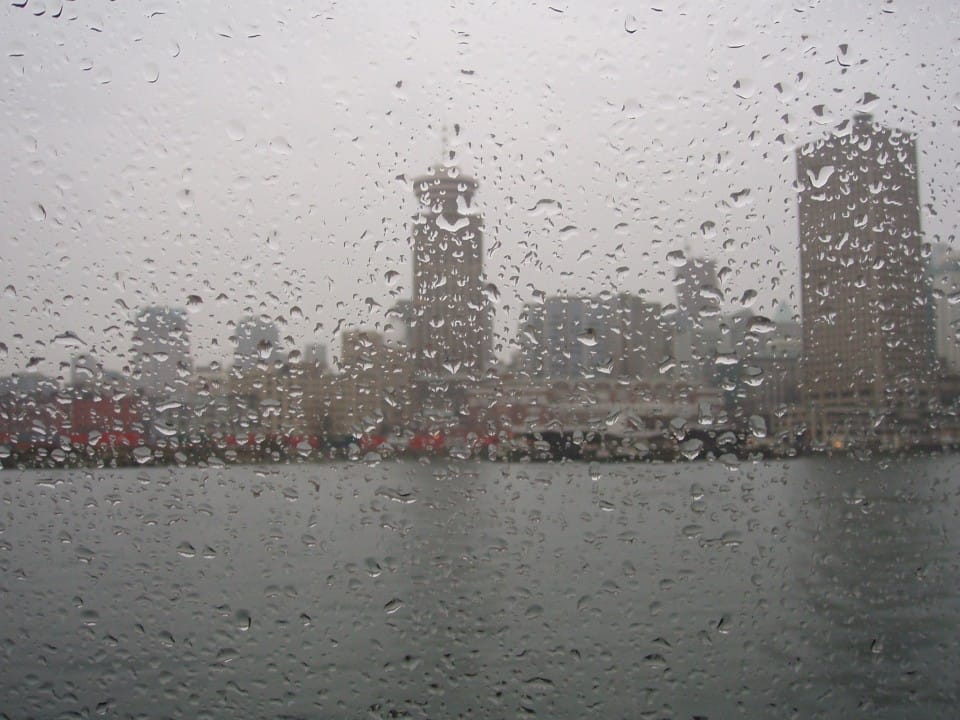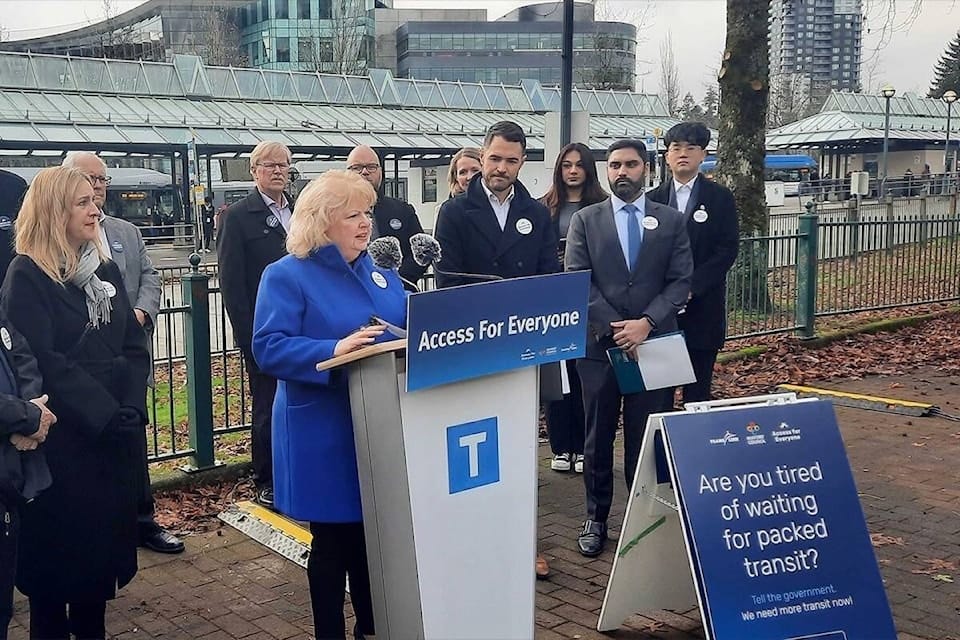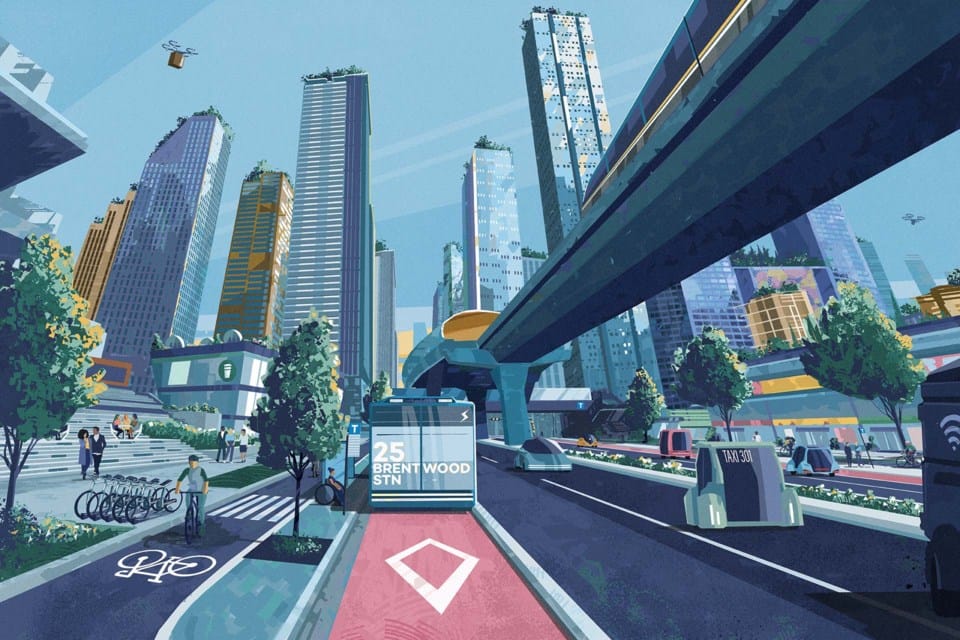
April 5, 2024 (reposted from LinkedIn)
Over the past five years, I’ve had the privilege play a small role in economic development through my work at the Vancouver Economic Commission (VEC), the City of Vancouver’s economic development agency. In September of last year, it was announced that the Commission would be wound down; as of today, that process is effectively complete, as is my time there.
As someone who had a front-row seat to VEC’s unique, and in many respects, globally leading, approach to economic development, I wanted to share my thoughts and reflections on what city-based economic development is and what Vancouver’s economic community (i.e., everyone) can do to make ours the best it can be.
Almost every facet of what a city does touches on the economy – in many ways, you could say that cities are a core part of the economy right from the jump. But beyond the infrastructure and regulations that cities develop, most cities also use a variety of softer powers, too, to influence the economy in ways they think are good. This is what we usually think of as “economic development,” and it’s some of the least understood work that cities really do.
Organizations like VEC, Invest in Surrey, Invest Vancouver, or the New Westminster Economic Development Office all work to support their local economy in intangible, but nevertheless critical ways:
Broadly speaking, they work to promote their local area as a key place to do business; they advocate to policymakers and regulators to shape economic flows in particular ways; they convene and facilitate connections, strategies, or other collaborations between different sectors of the economy; many do different types of research to understand various economic trends; and, lastly, some do work to attract companies and institutions from outside of their region to set up offices and operations in their own backyard.
In my time at VEC, and working with other economic developers from as nearby as Richmond and as far away as Yokohama and everywhere in between, I’ve seen many mistakes and successes, and for those who will continue on VEC’s work – and build their own – I want to offer a few reflections and learnings from my time in the field.
1. Most economic development work isn’t – and shouldn’t be - sexy

In the way that no one wants to understand how their modem works until the internet goes down – the systems that quietly keep our economy running are equally uninteresting until they stop working. There are a multitude of infrastructures, standards, and systems, like business licenses and apprenticeship standards, that facilitate every day-to-day economic function you can imagine. Some of these systems, especially older ones, can grow weary and inefficient over time and constantly need new life breathed into them. A good economic developer doesn’t only focus on the Big and New but understands the processes that make their economy run and is always looking for ways to help improve them.
In my time at VEC, I worked on everything from business license updating, to PST reclassification advocacy, to the classifications of and training for refrigeration technicians.
Our economic plans and those implementing them need to pay attention to these enabling systems and always be asking how we can make them more efficient, transparent, inclusive, and resilient.
2. Economic development is fundamentally a team sport

It’s easy to get competitive between cities, or different sectors, but we’re strongest when we find ways for everyone to benefit, both organizationally and across the whole of the economy. Though I am not a big sports person, it’s important to say a little bit about what kind of team sport economic development is: despite the fact many people think of it like basketball, where the economic Michael Jordan’s and Kobe Bryant’s of the world matter the most, economic development is soccer. Unless your best player is literally God, then the quality of your smallest and most vulnerable economic actors is always going to be important. This isn’t just a platitude; economic research, like that of Dan Breznitz, invariably shows that the most dynamic, resilient, and innovative economies are also the most equitable and forward-looking.
The temptation for all economic developers is to focus on whatever is newest and has the most buzz as their “strategic” priority, but technologies, services, companies, and people come and go every day.
To continue the sports metaphor: let’s make sure all of our players have cleats before we buy a hyperbaric chamber to decrease their downtime between games. In other words, we always need to start from the fundamentals, and by working with the whole of the ‘team’ — businesses, workers, government, civil society — we can generate the long-term prosperity we all deserve.
3. Addressing the headwinds facing Vancouver’s economy requires a transformational, not iterative, approach

Vancouver has had a uniquely strong and resilient economy for many years, and despite my and many others’ occasional desire to take credit for this, a massive portion of this comes down to pure, dumb luck. We’re a beautiful place, Canada’s major port, enjoy plentiful renewable energy right in our backyard, and, despite our foundational racism, have become a markedly more diverse and welcoming place (with plenty more work to be done still).
But in the face of the affordability crisis, automation, climate change, poisoned drugs, the ‘grey tsunami’ of retirements, and much more, it’s clear that we cannot rest on our laurels.
At the VEC, this is why we started to call our work “economic transformation,” and not just economic development. We, and thankfully many others, think our economy needs to transform: to recognize and support the Indigenous peoples whose territory we live on; to become more digitalized and productive; to operate without producing carbon or waste; to become dramatically more diverse and representative of the people who make up our society; and generate wealth that is truly shared by everyone.
These are not changes that will happen by adhering to the status quo – it will require boldness and not only on the easy things, like embracing new technologies, but also in hard things, like retirement policy, ownership, and wealth generation. The work will not be easy, but if we get it right, the prizes are enormous.
Working on behalf of the people who make up Vancouver’s economy has been one of the great privileges of my career. I am sad to leave an organization behind that I had grown to love, but I know that there are so many in our community who will take up the mantle. To you all, please know that I will be not only cheering you on, but always looking for ways to help.
Sign up for George Patrick Richard Benson
Strategist, writer, and researcher.
No spam. Unsubscribe anytime.
